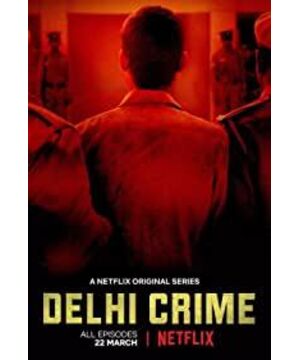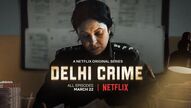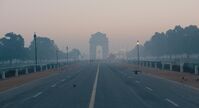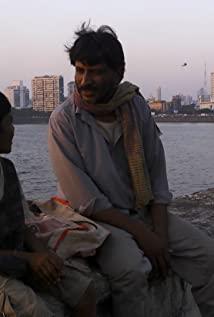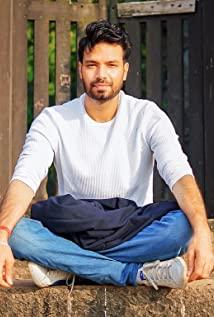Written at the very top, I recommend the friends who have watched the show to stop by the B station to watch the documentary "India's Daughter" produced by the BBC. The reporter interviewed the victim's family, criminals and family members, defense lawyers and many experts in related fields. Detailed, whether it is from supplementing the background of the case or adding a foreigner's perspective on the incident, it may be quite rewarding. The following comments combine the viewing experience of the two films, and I hope that it will not be too messy.
Probably because it is produced by a local production team in India, compared with "India's Daughter", "Delhi Crime" gives people a warmer feeling. The camera mainly focuses on the process of the Delhi police's handling of the case, and dramatically designed DCP Vartika Chaturvedi. For the main role of a woman and the mother of a beautiful girl, she turned grief and anger into strength, and pushed the investigation to be carried out quickly with a tough attitude.
Although they encountered many obstacles in the process of handling the case, although the film gave a lot of space to depict some politicians just taking advantage of the fire and wanting to take the opportunity to gain the position of deputy police chief, it revealed the decay of the superstructure to a certain extent. However, the image of the entire police force is relatively positive in the film. They are a symbol of justice, a sustenance of hope, and a display of the good side of the ruling class, but their power is suppressed in various ways.
In contrast, "India's Daughter" stood from an outsider's point of view and handed over a much more "cold" answer. I don't know if the BBC took it out of context when editing, but from the final effect, the words that one of the rapists and their defense lawyer said calmly to the camera made it hard to believe that this is modern civilization. The minds of people born out of society.
After a sexual assault in India, suspects should hardly bother to evade responsibility by diverting public attention through 'slut shaming', because in the eyes of thousands, the victim is automatically classified as '' Indiscreet", "indecent" "slut" ranks.
Girls should be careful when they go out and who they accompany. What happened? I'm sorry, but you have to consider whether you have crossed the "boundary" for the first time, and who decides this "boundary" is decided by the man riding on the head of the woman.
Secondly, they regard rape and sexual assault as unavoidable things, but they are unwilling to use their brains that have evolved over thousands of years to control their lower bodies, which should have been different from those of animals.
Thirdly, even if a woman's eight-life bad luck encounters this kind of scum, she'd better not resist, "she should accept the rape quietly", and she'll let her go when the beast is done venting.
Because Deepika resisted during the rape, "she was slapped, kicked in the stomach, bruised all over her body, including her private parts, and bite marks all over her face, lips and limbs", even the doctor said, do not know where Start repairing the girl's mutilated body, or perhaps her soul.
"We don`t know which part to join."
Why do these Indian men have such a staggering thought for granted, why did they go from civilized people to savage beasts?
The BBC attempts to explain from the gap between the rich and the poor in society, the neglect of punishing criminals, the deep-rooted culture of thousands of years and the inaction of education. If these Indian men have lived in such an environment since childhood, the family believes that men are more important than women, and they hear and see their fathers calling and drinking their mothers all day long, and see that even their mothers who are female are "self-deprecating", favoring themselves against others. If he is partial to the daughter of the family, of course he will despise women and become a copy father.
From this point of view, "India's Daughter" places the origin of the incident in the traditional cultural concept that Indians are proud of but have rotted in the roots. Perhaps because of this, the documentary and "Delhi Crime" have a sense of powerlessness that justice does not know where to appeal.
This sentence by the defense attorney of the defendant is the most impressive thing in the whole documentary, not only because he admits the low status of women, but also because of the naturalness in his expression and tone, but also because this sentence comes from such a well-educated lawyer mouth. It can be seen that the Indian government has neglected and even distorted gender equality education.
I really like the picture of the female police officer staring at the 6 dolls hanging from the tree at the end of the TV series. The people standing feel so heavy, but the dolls on the tree seem to be light and do not know if they can withstand a gust of wind.
Uneasy feeling.
This time I sent these 6 people in, who will be next time? What if the next time it's not the ordinary people in the slums, but the criminals from the rich and powerful? How long will the public anger last, and how many girls' lives will the next anger explode? When will women get the protection and voice they deserve?
But after writing so much, I can only helplessly follow an old saying—
View more about Delhi Crime reviews


